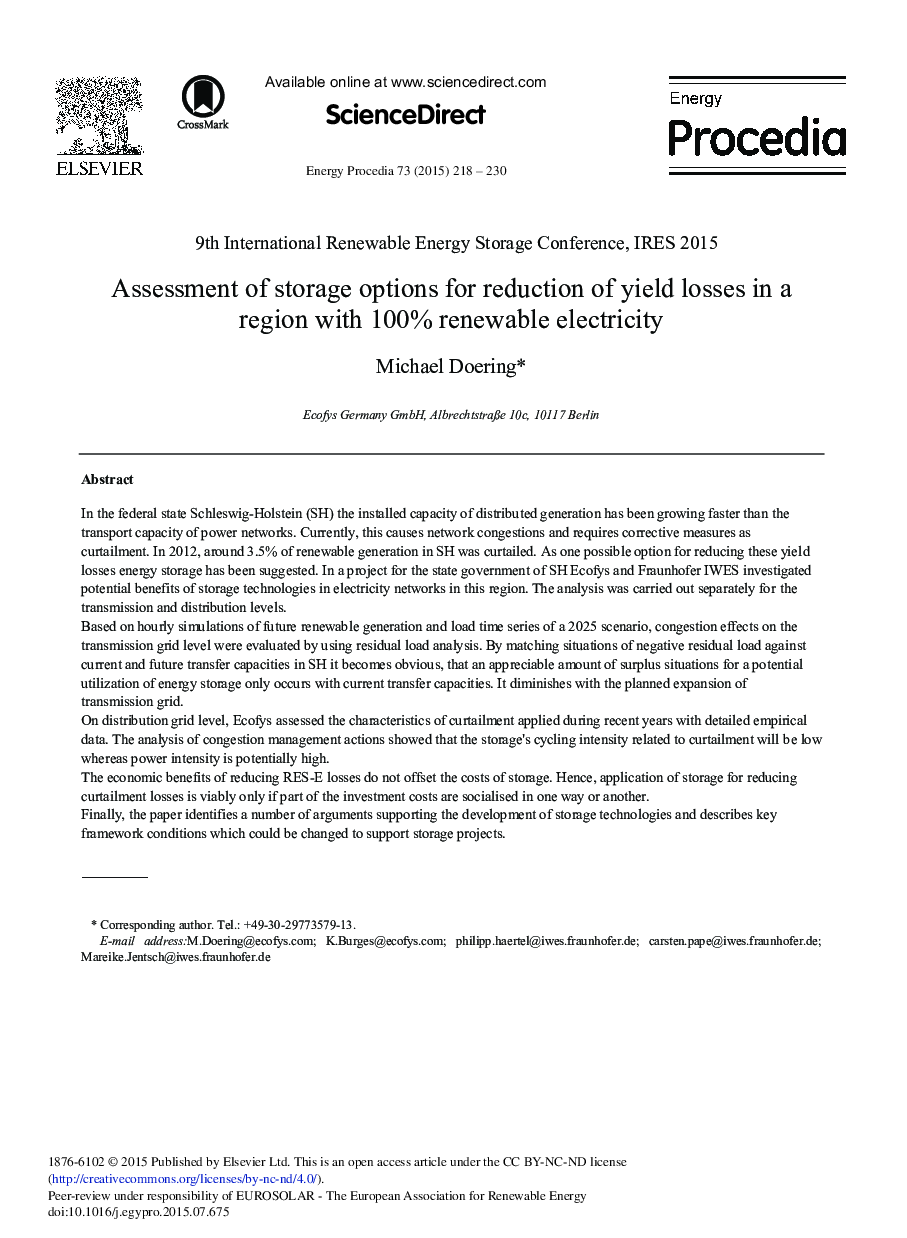| Article ID | Journal | Published Year | Pages | File Type |
|---|---|---|---|---|
| 1510017 | Energy Procedia | 2015 | 13 Pages |
In the federal state Schleswig-Holstein (SH) the installed capacity of distributed generation has been growing faster than the transport capacity of power networks. Currently, this causes network congestions and requires corrective measures as curtailment. In 2012, around 3.5% of renewable generation in SH was curtailed. As one possible option for reducing these yield losses energy storage has been suggested. In a project for the state government of SH Ecofys and Fraunhofer IWES investigated potential benefits of storage technologies in electricity networks in this region. The analysis was carried out separately for the transmission and distribution levels.Based on hourly simulations of future renewable generation and load time series of a 2025 scenario, congestion effects on the transmission grid level were evaluated by using residual load analysis. By matching situations of negative residual load against current and future transfer capacities in SH it becomes obvious, that an appreciable amount of surplus situations for a potential utilization of energy storage only occurs with current transfer capacities. It diminishes with the planned expansion of transmission grid.On distribution grid level, Ecofys assessed the characteristics of curtailment applied during recent years with detailed empirical data. The analysis of congestion management actions showed that the storage's cycling intensity related to curtailment will be low whereas power intensity is potentially high.The economic benefits of reducing RES-E losses do not offset the costs of storage. Hence, application of storage for reducing curtailment losses is viably only if part of the investment costs are socialised in one way or another.Finally, the paper identifies a number of arguments supporting the development of storage technologies and describes key framework conditions which could be changed to support storage projects.
